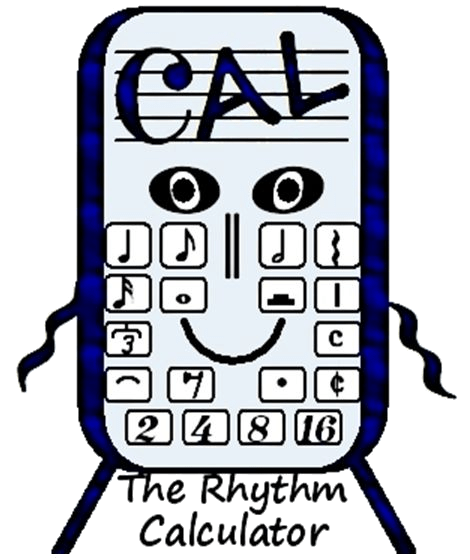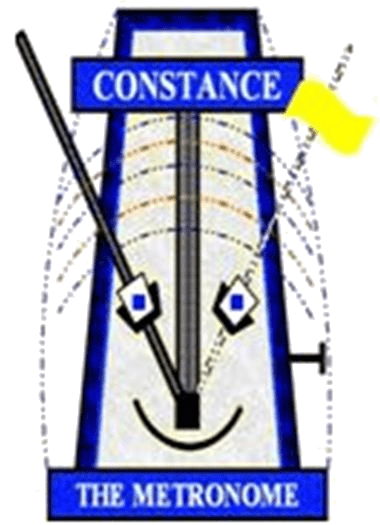D MAJOR ETUDES
Great news! It’s time to power-up your playing!

In French, Étude means study.
In this section, you will perform music that have rhythm changes and include rests.

Focused etude study, gives your string playing polish and finesse.
Practicing Etudes help you build your instrument technique.
Written as skill training musical compositions; Etudes are designed to help you improve.
Links to D Major Etudes

Following the D Major Etudes, there is a Mastery Checkpoint. While practicing, always focus your efforts.
Focused practice process: THINK PLAN LISTEN ATTEMPT REPEAT
After completing the D Major Etudes, you will learn new notes located on your instrument’s remaining strings.
The range of each instrument will then be highlighted as you learn to perform pieces written with melody and harmony.
Each instrument will learn to play independent musical parts.
D Major Etudes are ahead.

Cal has returned so he can review rhythm and Constance will help you keep a steady tempo.
D Major Home Instrument Tapes Finger Mechanics Finger Numbering Finger Dexterity Finger Position
Finger Intensity Hand Position Principles Hand Position Rhymes Space at the Base Swell the Well Swing the Wing
Hand Position Set-Up Violin Notes on D Viola Notes on D Cello Notes on D Bass Notes on D Violin Notes on A
Viola Notes on A Cello Notes on A Meet Guide Bass Notes on G D Major Training Exercises The Lower-Tetrachord
The Major Second The Major Third The Perfect Fourth The Upper-Tetrachord The Perfect Fifth The Major Sixth
The Major Seventh The Perfect Octave The Complete D Major Scale Left Thumb Logic Left Thumb Flexible Location
Knuckle Leverage D Major Etudes Arpeggio Patterns D Major Mastery Checkpoint Extending the Instrument’s Range
Finger Location Terms Violin Notes on G Viola Notes on G Cello Notes on G Bass Notes on E Bass Notes on A
Viola Notes on C Cello Notes on C Violin Notes on E Third Position Principles Violin Third Position on E
Third Position Measurement Differences D Major Harmony Interval Categories Orchestra Harmony in D Major
Preparing for Orchestra Pieces Divisi Protocol Orchestra Chord Textures Ensemble Engine Technique Building
Practice Coins Violin Technique Builder Viola Technique Builder Cello Technique Builder Bass Technique Builder
Dynamic March Theme and Variations Bowing Dynamics Dynamic March Performance Details Linked Bowing Exercise
Off-Beats Exercise Neighbor Notes Complete Dynamic March Composition Score and Parts
Finger Intensity Hand Position Principles Hand Position Rhymes Space at the Base Swell the Well Swing the Wing
Hand Position Set-Up Violin Notes on D Viola Notes on D Cello Notes on D Bass Notes on D Violin Notes on A
Viola Notes on A Cello Notes on A Meet Guide Bass Notes on G D Major Training Exercises The Lower-Tetrachord
The Major Second The Major Third The Perfect Fourth The Upper-Tetrachord The Perfect Fifth The Major Sixth
The Major Seventh The Perfect Octave The Complete D Major Scale Left Thumb Logic Left Thumb Flexible Location
Knuckle Leverage D Major Etudes Arpeggio Patterns D Major Mastery Checkpoint Extending the Instrument’s Range
Finger Location Terms Violin Notes on G Viola Notes on G Cello Notes on G Bass Notes on E Bass Notes on A
Viola Notes on C Cello Notes on C Violin Notes on E Third Position Principles Violin Third Position on E
Third Position Measurement Differences D Major Harmony Interval Categories Orchestra Harmony in D Major
Preparing for Orchestra Pieces Divisi Protocol Orchestra Chord Textures Ensemble Engine Technique Building
Practice Coins Violin Technique Builder Viola Technique Builder Cello Technique Builder Bass Technique Builder
Dynamic March Theme and Variations Bowing Dynamics Dynamic March Performance Details Linked Bowing Exercise
Off-Beats Exercise Neighbor Notes Complete Dynamic March Composition Score and Parts








